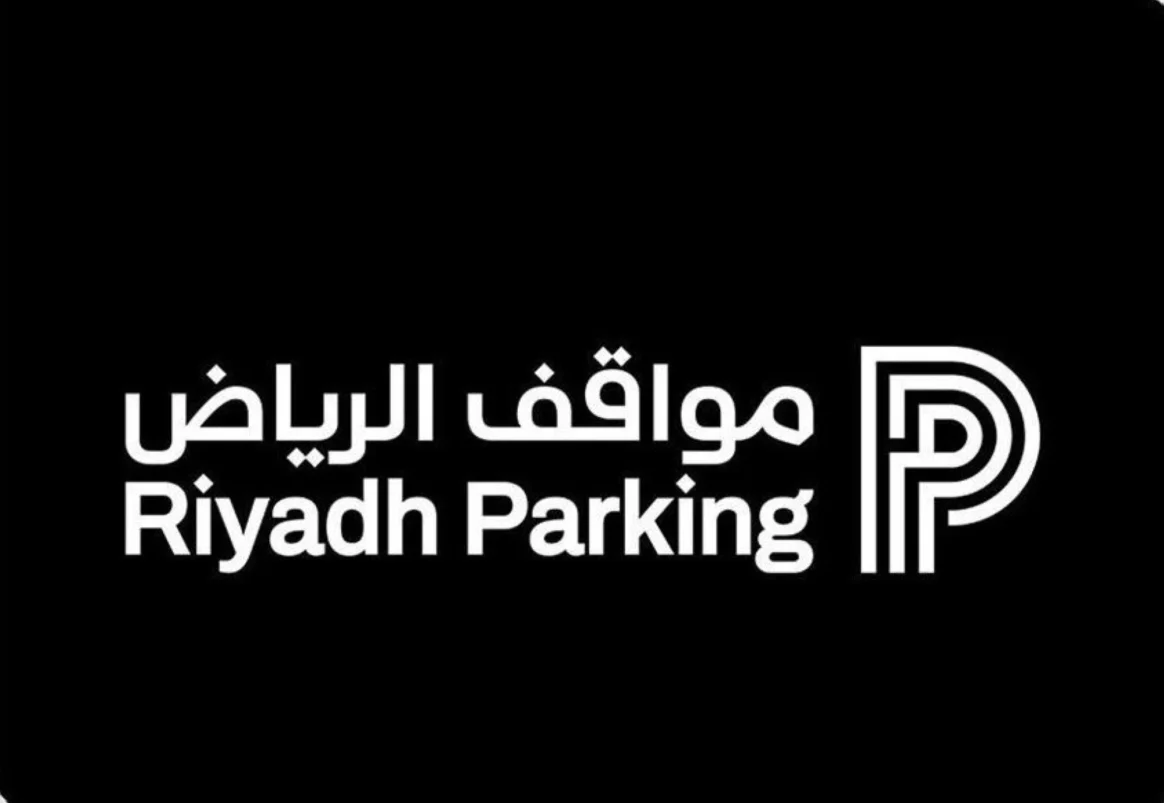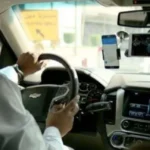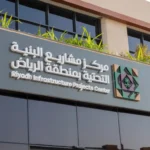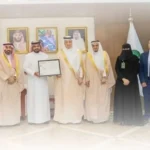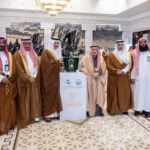Continuing from the previous phase, which focused on paid parking in vital commercial streets
The Riyadh Parking Project has announced the activation of managed non-paid parking within residential neighborhoods as part of the first phase of the initiative. The project aims to regulate and manage public vehicle parking in Riyadh, reduce improper practices, and prevent vehicles from spilling over from commercial streets into nearby residential areas.
Residents and visitors can obtain permits through the “Riyadh Parking” app
The project contributes to the objectives of Saudi Vision 2030 by providing a more organized urban environment and enhancing the quality of life for residents and visitors in Riyadh.
This activation is part of a comprehensive project plan, following the previous phase that focused on paid parking in several key commercial streets. The current step aims to improve parking efficiency and optimize the use of public spaces by reducing vehicle overflow from commercial streets into nearby residential areas, which leads to congestion and unregulated parking.
The concept of managed parking in residential areas adjacent to commercial streets, under the “Riyadh Parking” project, involves regulating parking by limiting non-resident vehicles. This is achieved through a digital permit system for residents and their visitors via the “Riyadh Parking” app, ensuring organized parking and reducing random parking that negatively impacts residents’ comfort and quality of life.
Residential permits for residents and visitors can be obtained digitally through the “Riyadh Parking” app, linked to the national “Nafath” platform, simplifying the registration and secure verification process. The current phase includes the Al-Wurud neighborhood, with gradual expansion planned to cover additional areas adjacent to paid parking on commercial streets in later stages.
The “Riyadh Parking” project, launched in August 2024, is one of the largest smart parking initiatives in the world. It aims to regulate over 140,000 non-paid parking spots in residential areas, alongside managing 24,000 paid parking spots on commercial streets. The first phase includes 12 districts across several neighborhoods, such as Al-Wurud, Al-Rahmaniyah, West Al-Ulya, Al-Muruj, King Fahd, and Al-Sulimaniyah.
Al-Wurud neighborhood
Al-Wurud is a residential neighborhood in Riyadh, Saudi Arabia, known for its modern infrastructure and family-friendly environment. Developed as part of the city’s urban expansion, it reflects Riyadh’s rapid growth in recent decades. While not a historic site, it represents contemporary Saudi living with amenities like parks, schools, and shopping centers.
Riyadh Parking Project
The **Riyadh Parking Project** is a modern urban initiative in Saudi Arabia’s capital, designed to address parking shortages and improve traffic management in the rapidly growing city. Launched as part of Riyadh’s broader smart city and infrastructure development plans, the project incorporates technology-driven solutions like automated parking systems and expanded parking facilities. It reflects the city’s efforts to enhance livability and sustainability under Saudi Vision 2030.
Riyadh Parking app
The **Riyadh Parking app** is a digital service launched by the Riyadh Municipality in Saudi Arabia to streamline parking management in the city. It allows users to locate, reserve, and pay for parking spaces electronically, reducing congestion and improving convenience. The app reflects Riyadh’s push toward smart city initiatives as part of Saudi Arabia’s broader **Vision 2030** modernization goals.
Nafath platform
The Nafath platform is a digital initiative by Saudi Arabia’s Ministry of Communications and Information Technology (MCIT) designed to support and empower individuals with disabilities by providing accessible technology and digital services. Launched as part of Saudi Vision 2030, it aims to enhance inclusivity and ensure equal opportunities in the digital space. The platform offers resources, training, and tools to help people with disabilities integrate into the workforce and society.
Al-Rahmaniyah
Al-Rahmaniyah is a town in Egypt, located in the Beheira Governorate in the Nile Delta region. Historically, it was part of ancient agricultural lands and played a role in Egypt’s agrarian economy. While not a major tourist site, it reflects the rural culture and traditions of the Nile Delta.
West Al-Ulya
West Al-Ulya is a modern, affluent district in northwestern Riyadh, Saudi Arabia, known for its upscale residences, diplomatic quarters, and commercial hubs. Developed in the late 20th century, it reflects Riyadh’s rapid urbanization and serves as a key area for expatriates and businesses. While lacking deep historical roots, it symbolizes the city’s transformation into a contemporary metropolis.
Al-Muruj
Al-Muruj, also known as the “Rock Art Sites of the Hail Region,” is a UNESCO-listed cultural site in Saudi Arabia featuring thousands of ancient petroglyphs and inscriptions dating back over 10,000 years. These rock carvings depict scenes of human and animal life, offering insights into the region’s prehistoric civilizations and their interactions with the environment. The site highlights the rich cultural heritage of northern Arabia and the continuity of human presence in the area.
King Fahd
King Fahd, often associated with King Fahd International Stadium in Riyadh, Saudi Arabia, is a major sports and cultural venue named after the late King Fahd bin Abdulaziz Al Saud. Opened in 1987, it is one of the largest stadiums in the country and has hosted significant events, including the FIFA Confederations Cup. The site honors King Fahd’s legacy as a modernizing leader who promoted infrastructure and sports development in Saudi Arabia.

